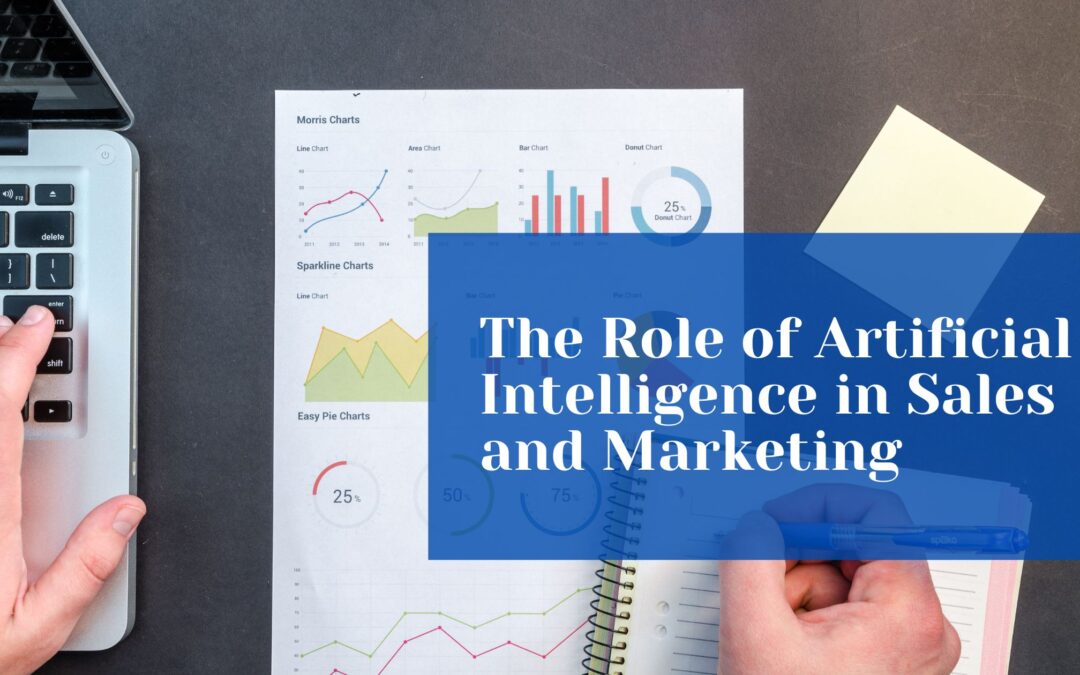Staying ahead of the curve is paramount for businesses striving to maintain a competitive edge. In recent years, one technological innovation has emerged as a game-changer: Artificial Intelligence (AI). From predictive analytics to personalized customer experiences, AI is revolutionizing how companies approach sales and marketing strategies.
Understanding AI in Sales and Marketing
At its core, AI refers to the simulation of human intelligence processes by computer systems. In sales and marketing, AI encompasses a broad spectrum of applications designed to streamline operations, enhance customer engagement, and drive revenue growth. These applications include:
- Predictive Analytics: AI algorithms analyze vast datasets to identify patterns and trends, enabling businesses to anticipate customer behavior and market shifts with unprecedented accuracy. Organizations can make data-driven decisions that optimize sales strategies and resource allocation by leveraging predictive analytics.
- Lead Scoring and Qualification: AI-powered lead scoring algorithms evaluate prospect data to prioritize leads based on their conversion likelihood. By automating lead qualification processes, sales teams can focus on high-potential opportunities, maximizing efficiency and productivity.
- Personalized Marketing Campaigns: AI enables hyper-personalized marketing campaigns by leveraging customer data to deliver tailored content and recommendations. By understanding individual preferences and behaviors, businesses can engage customers more profoundly, fostering loyalty and driving conversions.
- Chatbots and Virtual Assistants: AI-powered chatbots and virtual assistants provide round-the-clock customer support, answering inquiries, resolving issues, and guiding users through the sales process. Businesses can enhance customer satisfaction by automating routine interactions while freeing up human resources for more complex tasks.
- Sales Forecasting and Optimization: AI algorithms analyze historical sales data, market trends, and external factors to generate accurate sales forecasts and recommendations. By providing insights into future performance, AI empowers businesses to proactively adjust strategies and seize growth opportunities.
The Impact of AI on Sales and Marketing Effectiveness
The integration of AI into sales and marketing processes yields tangible benefits across various dimensions:
- Enhanced Efficiency: By automating repetitive tasks and workflows, AI frees up valuable time and resources, enabling sales and marketing teams to focus on high-value activities such as relationship-building and strategy development.
- Improved Targeting and Segmentation: AI-driven insights would allow businesses to target the right audience with the right message at the right time, maximizing the effectiveness of marketing campaigns and sales efforts.
- Increased Revenue and ROI: By optimizing sales processes, identifying revenue opportunities, and reducing inefficiencies, AI contributes to revenue growth and higher return on investment (ROI) for businesses.
- Better Customer Experience: Personalized interactions, proactive support, and timely recommendations driven by AI contribute to an enhanced customer experience, fostering satisfaction, loyalty, and advocacy.
Overcoming Challenges and Harnessing Opportunities
While the potential of AI in sales and marketing is vast, realizing its full benefits requires overcoming specific challenges:
- Data Quality and Privacy: AI relies on high-quality data for accurate insights and predictions. Businesses must prioritize data quality and compliance with privacy regulations to maximize the effectiveness of AI-driven initiatives.
- Skill Gap: Implementing AI technologies requires specialized skills and expertise. Investing in training and talent acquisition is essential to ensure teams can effectively leverage AI.
- Ethical Considerations: As AI increasingly integrates into sales and marketing processes, businesses must navigate ethical considerations related to data usage, algorithmic bias, and transparency to maintain trust and integrity.
Artificial Intelligence is revolutionizing the sales and marketing landscape, offering unprecedented opportunities for businesses to drive growth, enhance efficiency, and deliver exceptional customer experiences. By embracing AI-driven strategies and technologies, organizations can unlock new possibilities and position themselves for success in an increasingly competitive market environment.
